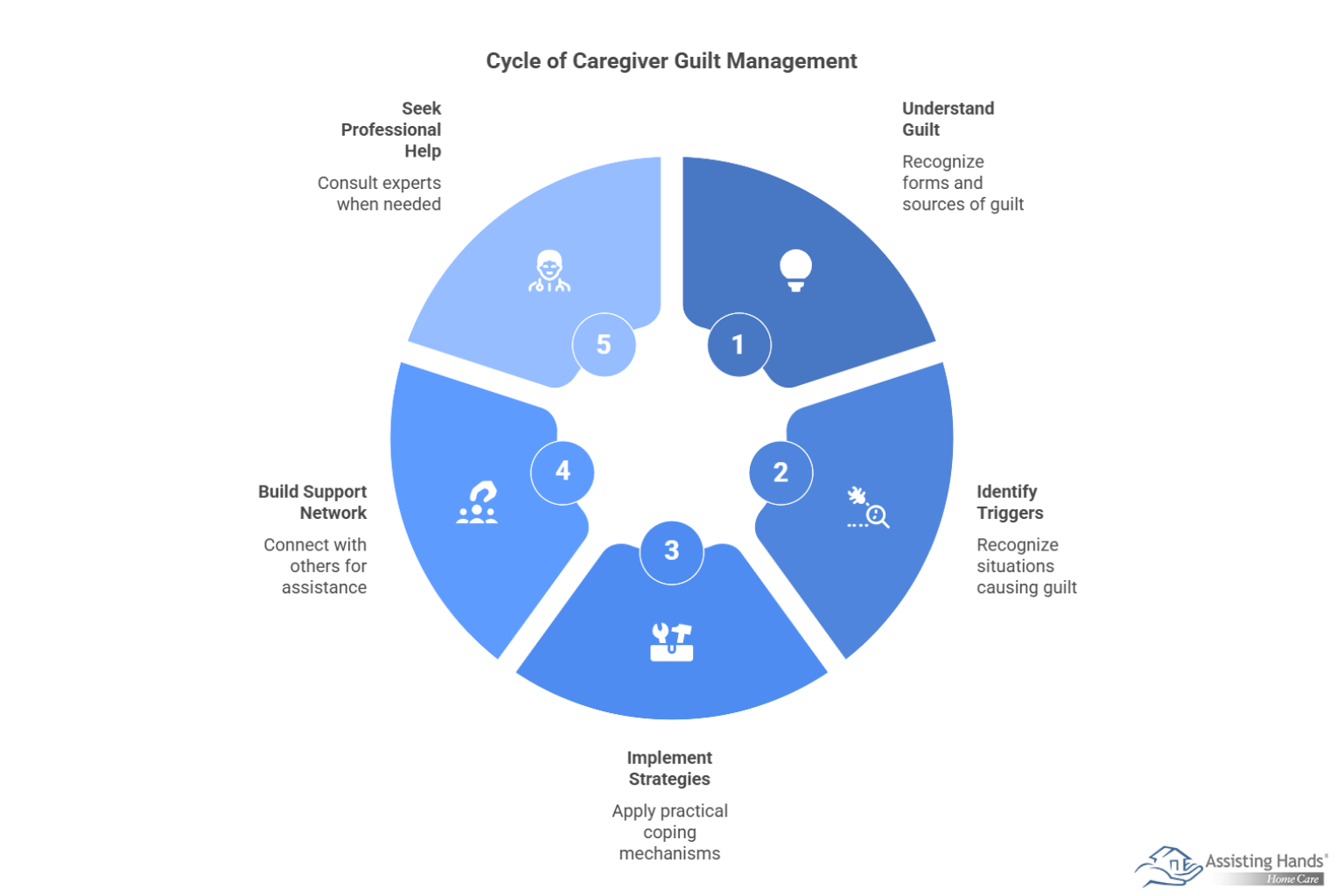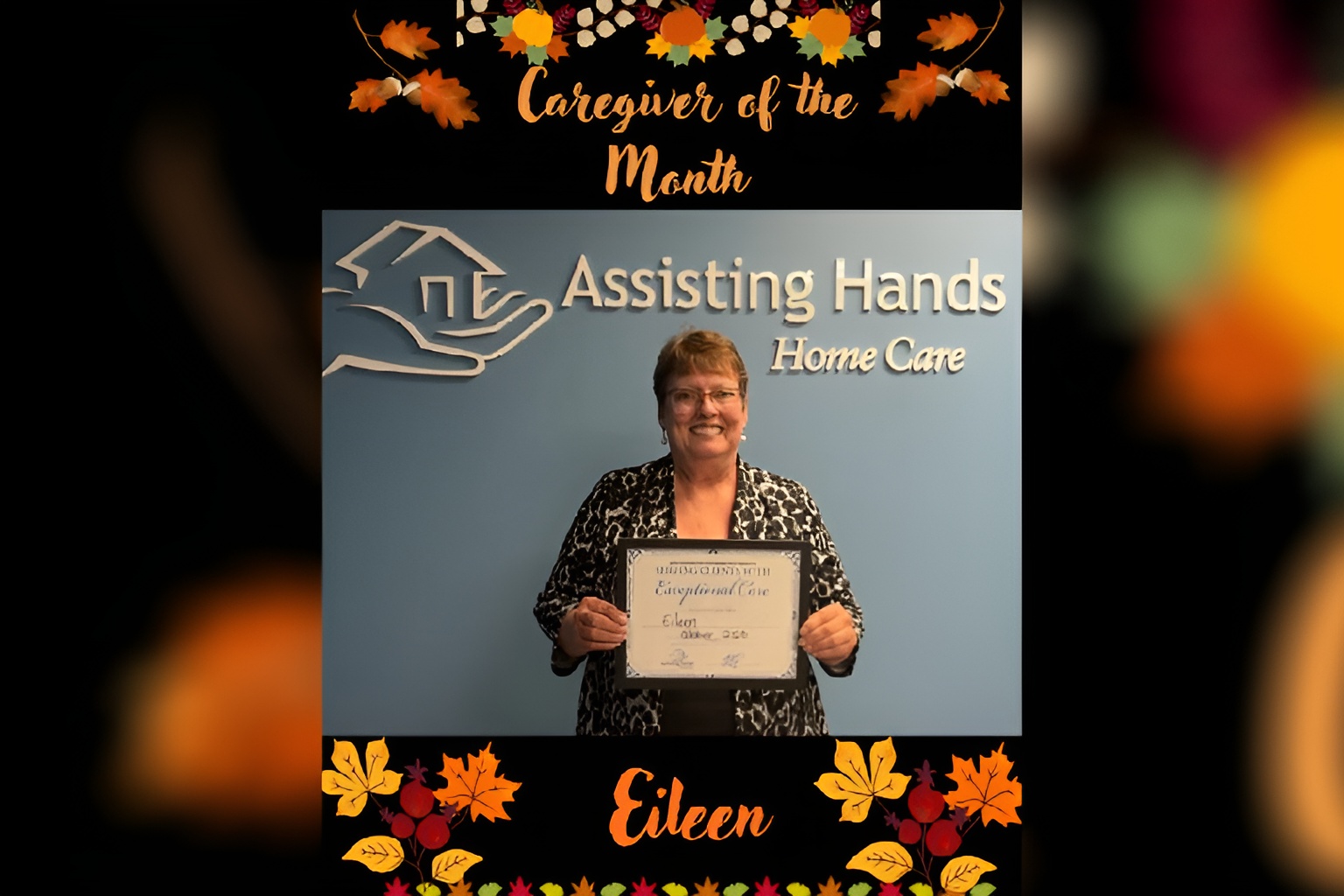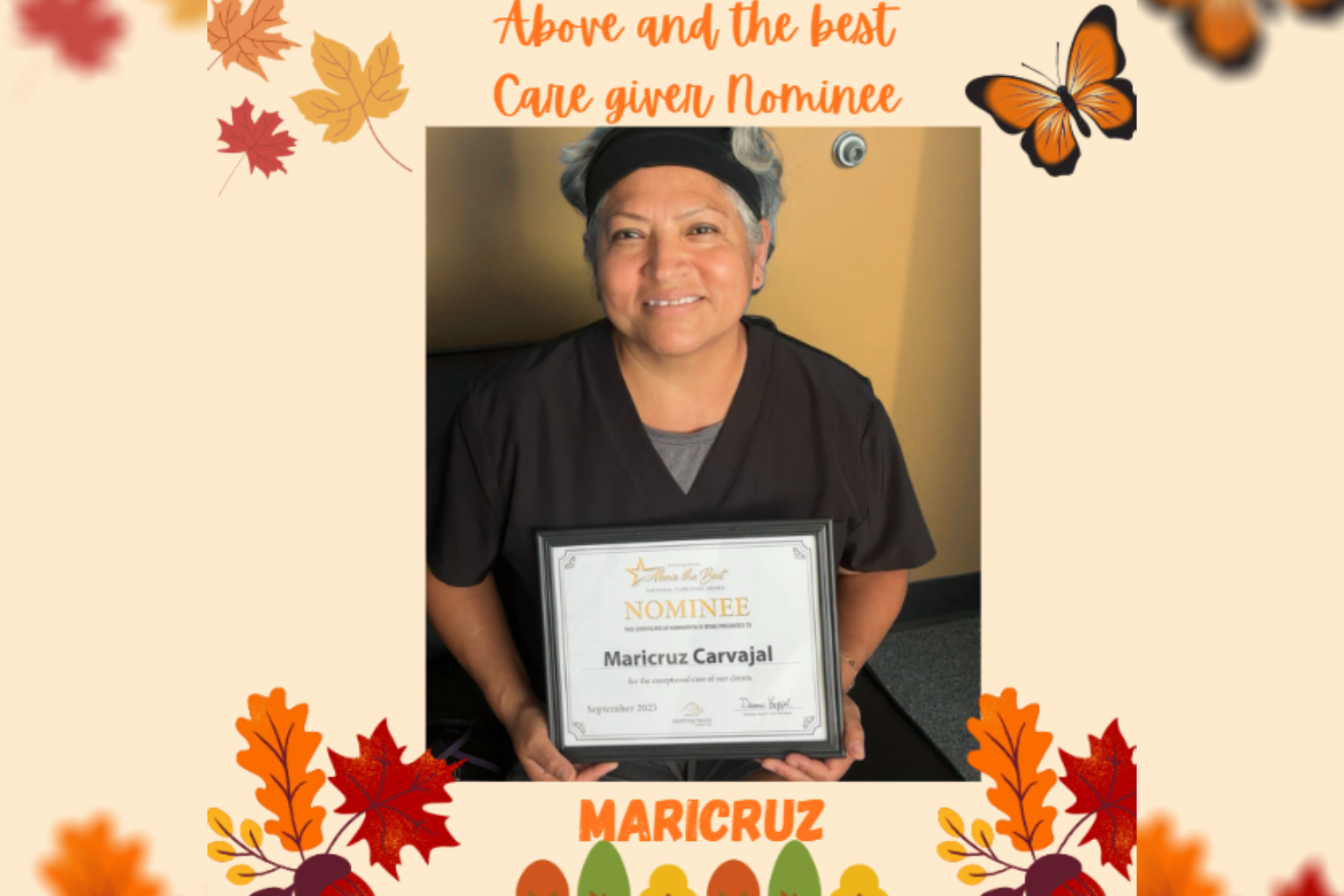
Table of Content
Caregiving often brings unexpected emotional challenges, with guilt being one of the most common and difficult feelings to navigate. If you’re caring for an aging parent, feelings of guilt can emerge from various sources and significantly impact your wellbeing.
Understand Caregiver Guilt
Caregiver guilt manifests in many forms and can stem from both rational and irrational thoughts. You might feel guilty for:
- Taking breaks or asking for help
- Feeling overwhelmed or frustrated with your loved one
- Having moments of resentment about your caregiving responsibilities
- Not being able to provide perfect care or cure your loved one’s health condition
- Maintaining your own social life or pursuing personal interests
This guilt often intensifies because caregiving involves someone you love deeply, making it difficult to separate your emotions from your responsibilities. The pressure to be constantly available and infinitely patient can create unrealistic expectations that no human can meet.

Recognize Common Guilt Triggers
Several situations commonly trigger guilt in caregivers. Understanding these patterns can help you identify when guilt is affecting your decision-making.
Decision-making dilemmas frequently cause guilt, especially when choosing between your loved one’s preferences and professional medical advice. You might question whether you’re making the right choices about your loved one’s care, living arrangements, or treatment options.
Time management conflicts also create guilt. Balancing caregiving with work, family, and personal needs often feels impossible, leading to guilt regardless of which area receives your attention at any given moment.
Physical and emotional limitations can trigger self-blame. When you feel tired, frustrated, or simply need space, you might interpret these normal human responses as personal failures or signs of inadequate love.
Seniors can face a variety of age-related challenges. Though some families choose to take on the caregiving duties, there may come a time when they need a trusted at-home care provider. Families sometimes need respite from their duties so they can focus on their other responsibilities, and some seniors need around-the-clock assistance that their families are not able to provide. Assisting Hands Home Care is here to help.
Try Practical Strategies for Managing Guilt
Addressing caregiver guilt requires both mindset shifts and practical actions. Start by challenging unrealistic expectations and perfectionist thinking patterns.
Set realistic boundaries by acknowledging you cannot be available 24/7 without burning out. Create specific times for caregiving tasks and protect time for your own needs without apologizing.
Practice self-compassion by treating yourself with the same kindness you would offer a friend in your situation. When guilt arises, ask yourself if you would judge another caregiver as harshly as you’re judging yourself.
Document positive moments by keeping a brief journal of meaningful interactions, positive changes in your loved one’s condition, or times when your care made a difference. This tangible record can combat feelings of inadequacy during difficult periods.
Communicate openly with your loved one about your limitations and needs. Many care recipients understand more than caregivers realize and may even feel guilty about burdening you.
Family caregivers need to care for their own wellbeing. If you’re caring for an aging loved one and are feeling overwhelmed, consider hiring a professional caregiver to provide respite care. Libertyville families who want to prevent burnout can turn to Assisting Hands Home Care. One of our professional caregivers can assist your loved one at home while you take a nap, go to work, run errands, or go on vacation.
Build Your Support Network
Isolation amplifies guilt, while connection provides perspective and practical assistance. Building a strong support network is essential for managing caregiver guilt effectively.
Connect with other caregivers through support groups, either in person or online. Hearing similar experiences from others can normalize your feelings and provide practical solutions you hadn’t considered.
Accept help from friends and family by creating specific ways others can contribute. Rather than declining offers of assistance, prepare a list of concrete tasks others can handle, such as grocery shopping, meal preparation, or spending time with your loved one.
Work with healthcare professionals who can provide guidance on care decisions and reassure you about your choices. Regular check-ins with doctors, nurses, or social workers can validate your efforts and identify areas where professional services might reduce your burden.
Determine When Professional Help Becomes Necessary
Sometimes caregiver guilt becomes overwhelming despite your best efforts to manage it independently. Recognizing when to seek professional support is crucial for both your wellbeing and your ability to provide high-quality care.
Consider professional counseling if guilt is:
- Interfering with your sleep, appetite, or daily functioning
- Leading to symptoms of depression or anxiety
- Causing relationship problems with family or friends
- Making it difficult to make necessary care decisions
- Persisting despite implementing self-care strategies
A therapist experienced in caregiver issues can help you develop personalized coping strategies, process complex emotions, and maintain perspective during challenging periods.
An in-home caregiver can provide high-quality care to your senior loved one, allowing you to take some time off to relax, de-stress, and prevent negative emotions like guilt. If you’re the primary caregiver for a senior family member and are looking for professional in-home care, Assisting Hands Home Care Libertyville should be your top choice. Our dedicated and compassionate caregivers are committed to helping older adults manage their health and enjoy a higher quality of life in the golden years. Whether your loved one needs minor help with daily tasks or extensive 24-hour care, give us a call today.








